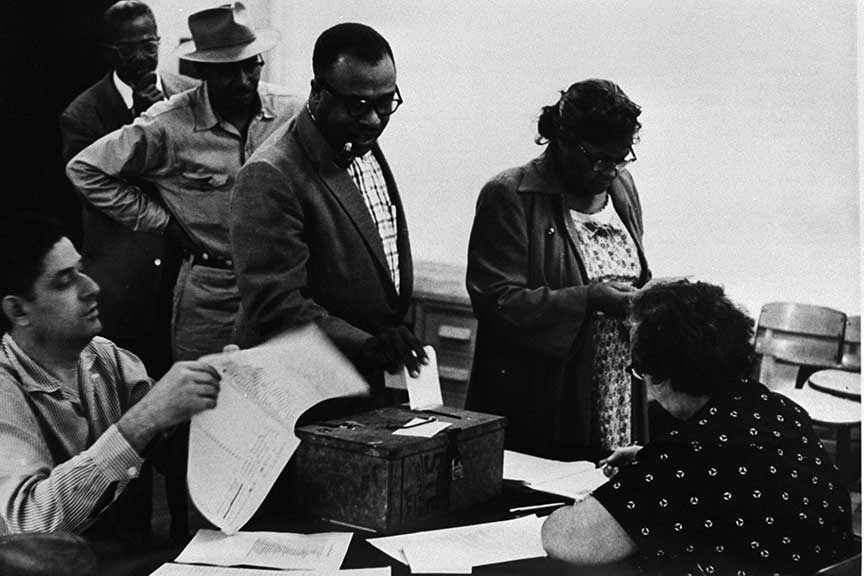1957 Voting Rights Act

|
In 1957, the United States Congress passed the Voting Rights Act of 1957, a landmark piece of legislation aimed at addressing the systemic barriers that had long prevented African Americans from exercising their right to vote, particularly in the Southern states. This act was the first civil rights legislation to be enacted by Congress since the end of Reconstruction, marking a significant step forward in the struggle for racial equality and justice in the United States.
The period following the Civil War and the Reconstruction era saw numerous gains for African Americans, including the 15th Amendment, which guaranteed the right to vote regardless of race. However, by the late 19th and early 20th centuries, Southern states had systematically undermined these gains through a series of discriminatory practices known as Jim Crow laws. These laws included literacy tests, poll taxes, and other mechanisms designed to disenfranchise Black voters and maintain White supremacy.
By the mid-20th century, the civil rights movement had gained momentum, with activists and organizations such as the NAACP working tirelessly to challenge racial segregation and discrimination. The violent suppression of Black voters and the widespread denial of their voting rights became a focal point for these efforts. Despite numerous legal battles and some victories, the reality on the ground remained grim for many African Americans in the South, who continued to face significant obstacles to voting.
Recognizing the urgent need for federal intervention, President Dwight D. Eisenhower proposed the Voting Rights Act of 1957. The bill aimed to address the most egregious barriers to voting and was designed to ensure that all eligible citizens, regardless of race, could participate in the democratic process. One of the key components of the act was the establishment of the Civil Rights Division within the Department of Justice, which was tasked with enforcing civil rights laws and investigating allegations of voter suppression and discrimination.
The Voting Rights Act of 1957 also created the Commission on Civil Rights, an independent agency responsible for investigating civil rights violations and making recommendations to the President and Congress. The commission played a crucial role in highlighting the ongoing issues of voter suppression and discrimination, providing a platform for victims to share their experiences and for the nation to understand the extent of the problem.
While the act was a significant step forward, it faced considerable opposition and was ultimately weakened by various amendments and compromises. Southern lawmakers, determined to preserve the status quo, succeeded in diluting some of the bill’s provisions. For example, the original proposal included stronger measures to protect Black voters, but these were watered down during the legislative process.
Despite these limitations, the Voting Rights Act of 1957 represented a critical moment in the civil rights movement. It was the first time since Reconstruction that the federal government took a legislative stand against voter discrimination. The act provided a foundation for future civil rights legislation and set the stage for more comprehensive measures to come.
The passage of the Voting Rights Act of 1957 also had symbolic significance. It demonstrated that the federal government was beginning to take the issue of civil rights seriously and was willing to challenge the entrenched systems of discrimination in the South. The act’s passage galvanized civil rights activists, who continued to push for stronger protections and more substantial reforms.
The limitations of the 1957 act became evident in the following years, as voter suppression tactics persisted in many Southern states. This realization led to the introduction of more robust legislation, culminating in the Voting Rights Act of 1965. This later act, signed into law by President Lyndon B. Johnson, included more stringent enforcement mechanisms and provided federal oversight of elections in areas with a history of discrimination.
 >
>